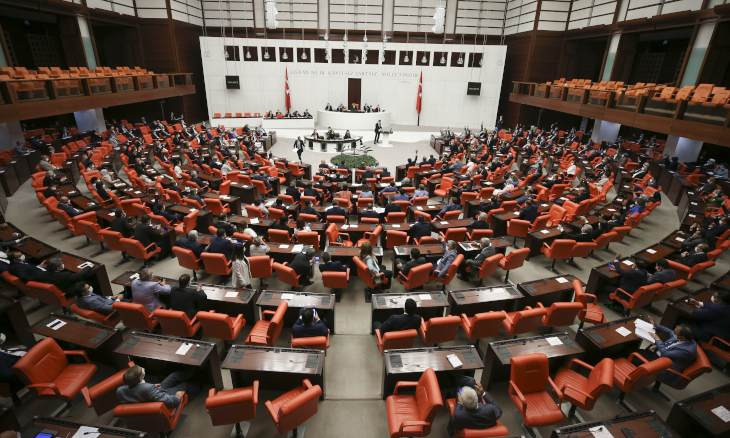Only Twitter didn't respond to Turkey's demand of appointing a representative: AKP
Twitter is the only social media platform that didn't respond to Turkey's demand of appointing a representative, AKP Group Deputy Chair Naci Bostancı said on July 29. "Most of them accepted appointing representatives. Only Twitter didn't respond," Bostancı told Habertürk on July 29.
Duvar English
Twitter is the only social media platform that didn't respond to Turkey's demand of appointing a representative, a ruling Justice and Development Party (AKP) deputy said, as he commented on a bill that was approved in parliament on July 29.
Turkey adopted a new social media law on July 29 that critics say will silence dissenting voices who have resorted to Twitter and other online platforms as the government tightened its grip on mainstream media.
The law backed by the AKP and its ally the Nationalist Movement Party (MHP) requires social media companies to appoint a local representative to address authorities' concerns.
"Most of them accepted appointing representatives. Only Twitter didn't respond," Bostancı told Habertürk on July 29.
"We don't see a major problem on that issue. Our main concern is for the establishment of a legal relationship between the people living in Turkey and social media platforms," he added.
 Turkish parliament passes law to regulate social media amid censorship criticism
Turkish parliament passes law to regulate social media amid censorship criticismBostancı claimed that social media platforms don't object to the law.
"A settlement would be reached until Oct. 1, which is when the law will enter into force," he said.
The law would allow Turkish authorities to remove content from platforms rather than blocking access as they have done in the past.
Companies including Facebook and YouTube that do not comply could have their bandwidth slashed by up to 90 percent, essentially blocking access, and face other penalties.
They must also store local users' information in Turkey, raising concerns that a state that critics say has grown more authoritarian under President Recep Tayyip Erdoğan will gain easy access.
An estimated 90 percent of major media in Turkey comes under the ownership of the state or is close to the government.
 Human Rights Watch slams Turkey's social media law over censorship
Human Rights Watch slams Turkey's social media law over censorship
